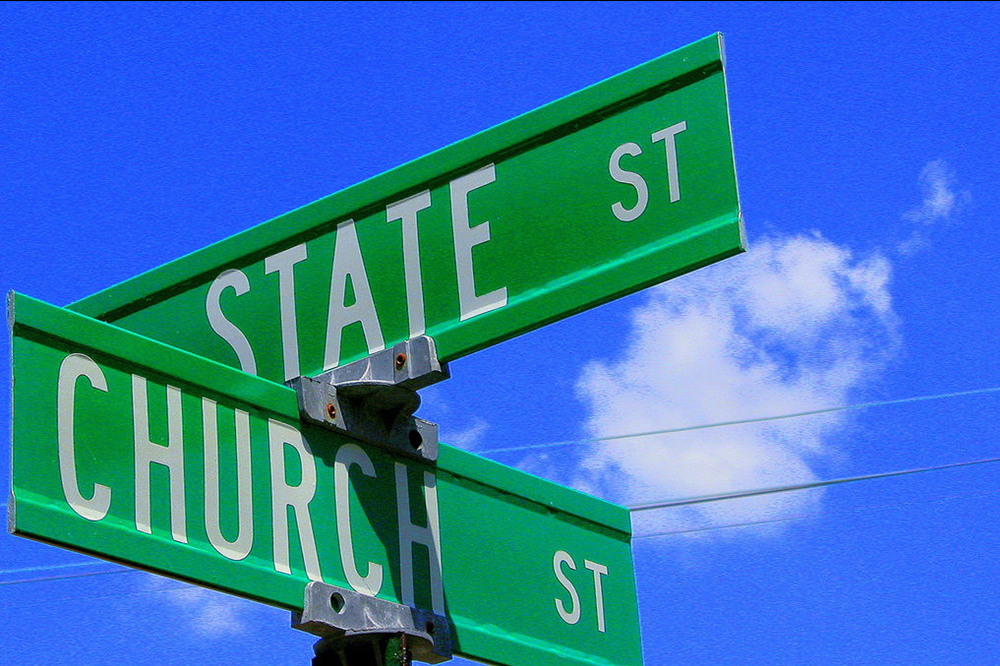
When I say secularism, I mean the principle of separating state intuitions from religious institutions, in terms of their power structures, funding, moral foundations, and just about anything else. As an American, I’m interested in advancing the Jeffersonian/Madisonian conception of strict separation of church and state, or at least preserving it in the face of pious encroachment.
It is easy for people to confuse the secular lifestyle (living without reference or deference to gods) with secularism as a sound public policy, and this can lead to the unfortunate conflation of secularism with atheism and the consequent exclusion of religious secularists from our separationist activism. This is, to my mind, a huge mistake. Religious people can have very good reasons for desiring to keep the state from intermeddling with any aspect of faith, even if they happen to fall within the majority faith.
James Madison made several original and piercing arguments in favour of total separation in an essay entitled Memorial and Remonstrance against Religious Assessments, which I strongly commend to your reading if you have not revisited it in the last few years. You will find an cumulative case argument written to Christians, from an ostensibly Christian perspective. At no point does Madison attack Christianity as a faith, except when it becomes corrupted by entanglement with state power:
[E]xperience witnesseth that ecclesiastical establishments, instead of maintaining the purity and efficacy of Religion, have had a contrary operation. During almost fifteen centuries has the legal establishment of Christianity been on trial. What have been its fruits? More or less in all places, pride and indolence in the Clergy, ignorance and servility in the laity, in both, superstition, bigotry and persecution. Enquire of the Teachers of Christianity for the ages in which it appeared in its greatest lustre; those of every sect, point to the ages prior to its incorporation with Civil policy.
Elsewhere, Madison takes a more Socratic approach on the problem of elevating Christianity over and against the other religious faiths
Who does not see that the same authority which can establish Christianity, in exclusion of all other Religions, may establish with the same ease any particular sect of Christians, in exclusion of all other Sects?
He is arguing throughout the essay that Christianity will be made stronger and purer when freed from reliance upon the state and made to stand on its own. I would argue that this is true not only for Christianity, but for any system of ideas, and I welcome people of faith who disavow special consideration from the state and work to forward the Madisonian project. To give you just one example of the sort of people I’m talking about, consider Bruce Prescott, lead plaintiff in Prescott v Oklahoma Capitol Preservation Commission. Even though he is a Baptist preacher and a member of the privileged majority religion where we live (here in the heart of the Bible Belt) Bruce firmly believes in the strict separation of church and state, and is willing to put his professional reputation on the line to uphold Madisonian principles.
Recently, my brother Chas and I had the chance to speak with Bruce about how he fits into the long Baptist tradition of secularism and what motivates him personally, for the Oklahoma Atheists Godcast. The audio was a bit dicey on his end, but I think he is audible enough for our purposes. He provides for us an excellent illustration of when and how secular people can make common cause with people of faith. Share and enjoy!
